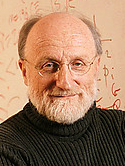A deep learning system accurately classifies primary and metastatic cancers using passenger mutation patterns Journal Article
| Authors: | Jiao, W.; Atwal, G.; Polak, P.; Karlic, R.; Cuppen, E.; Danyi, A.; de Ridder, J.; van Herpen, C.; Lolkema, M. P.; Steeghs, N.; Getz, G.; Morris, Q.; PCAWG Tumor Subtypes and Clinical Translation Working Group; & PCAWG Consortium |
| Contributors: | Abeshouse, A.; Al-Ahmadie, H.; Armenia, J.; Chen, H. W.; Davidson, N. R.; Gao, J.; Ghossein, R.; Giri, D. D.; Gundem, G.; Heins, Z.; Huse, J.; Iacobuzio-Donahue, C. A.; Kahles, A.; King, T. A.; Kundra, R.; Lehmann, K. V.; Levine, D. A.; Liu, E. M.; Ochoa, A.; Pastore, A.; Rätsch, G.; Reis-Filho, J.; Reuter, V.; Roehrl, M. H. A.; Sanchez-Vega, F.; Sander, C.; Schultz, N.; Senbabaoglu, Y.; Singer, S.; Socci, N. D.; Stark, S. G.; Vázquez-García, I.; Yellapantula, V. D.; Zhang, H. |
| Article Title: | A deep learning system accurately classifies primary and metastatic cancers using passenger mutation patterns |
| Abstract: | In cancer, the primary tumour’s organ of origin and histopathology are the strongest determinants of its clinical behaviour, but in 3% of cases a patient presents with a metastatic tumour and no obvious primary. Here,as part of the ICGC/TCGA Pan-Cancer Analysis of Whole Genomes (PCAWG) Consortium, we train a deep learning classifier to predict cancer type based on patterns of somatic passenger mutations detected in whole genome sequencing (WGS) of 2606 tumours representing 24 common cancer types produced by the PCAWG Consortium. Our classifier achieves an accuracy of 91% on held-out tumor samples and 88% and 83% respectively on independent primary and metastatic samples, roughly double the accuracy of trained pathologists when presented with a metastatic tumour without knowledge of the primary. Surprisingly, adding information on driver mutations reduced accuracy. Our results have clinical applicability, underscore how patterns of somatic passenger mutations encode the state of the cell of origin, and can inform future strategies to detect the source of circulating tumour DNA. © 2020, The Author(s). |
| Keywords: | controlled study; human tissue; primary tumor; somatic mutation; genetics; mutation; histopathology; diagnostic accuracy; neoplasm; neoplasms; reproducibility; reproducibility of results; metastasis; biology; computational biology; pathology; validation study; mutational analysis; human genome; neoplasm metastasis; intermethod comparison; genome; cancer classification; tumor; genome, human; procedures; high throughput sequencing; cell component; dna sequencing; cancer; humans; human; male; female; article; whole genome sequencing; circulating tumor dna; deep learning; accuracy assessment; passenger mutation pattern |
| Journal Title: | Nature Communications |
| Volume: | 11 |
| ISSN: | 2041-1723 |
| Publisher: | Nature Publishing Group |
| Date Published: | 2020-02-05 |
| Start Page: | 728 |
| Language: | English |
| DOI: | 10.1038/s41467-019-13825-8 |
| PUBMED: | 32024849 |
| PROVIDER: | scopus |
| PMCID: | PMC7002586 |
| DOI/URL: | |
| Notes: | Article -- Erratum issued, see DOI: 10.1038/s41467-022-32329-6 -- Export Date: 13 January 2023 -- Source: Scopus |
Altmetric
Citation Impact
BMJ Impact Analytics
MSK Authors
-
 492
492Ghossein -
 184
184Giri -
 380
380Levine -
 186
186King -
 339
339Singer -
 143
143Huse -
 266
266Socci -
 210
210Sander -
 668
668Al-Ahmadie -
 1235
1235Reuter -
 132
132Gao -
 500
500Schultz -
 68
68Ratsch -
 31
31Kahles -
 30
30Chen -
 642
642Reis-Filho -
 35
35Senbabaoglu -
 22
22Lehmann -
 17
17Stark -
 127
127Roehrl -
 142
142Sanchez Vega -
 55
55Pastore -
 56
56Armenia -
 22
22Heins -
 90
90Kundra -
 48
48Zhang -
 26
26Abeshouse -
 30
30Ochoa -
 58
58Gundem -
 24
24Liu -
 51
51Yellapantula -
 14
14Davidson
Related MSK Work





